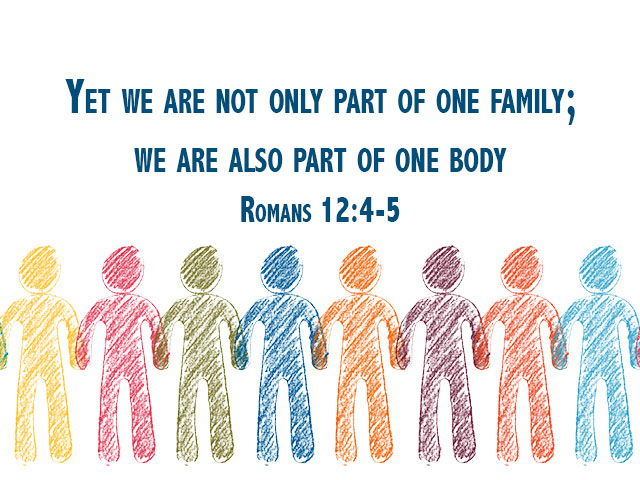One Body
From TABLETALK
Men can be quite competitive. When a group of men gets together, they will often try to one-up one another in terms of ability, intellect, or achievements. This is often good-natured, as the men encourage one another to excel in whatever they’re engaging in at the time.
I participate in a free men’s outdoor workout group. Men of all ages and athletic ability participate. One of the great things about it is the support that the men give to one another. It is part of the group’s ethos that we do not compete with one another; we compete with ourselves, striving to get just a bit better every day. And the men bear this principle out. We congratulate one another just for showing up and putting in the effort, and we recognize one another’s achievements with commemorative patches and fire emojis and fist-bumps.
Christians are likewise called to celebrate one another, and we are so called for one very important reason. This reason is hinted at in the opening to the Lord’s Prayer. In Matthew 6, Jesus teaches His disciples to pray, beginning by saying, “Our Father” (v. 9).
Much could be said about the privilege we have of addressing God as “Father”—chiefly the peace with and access to God that we now have as His adopted children—but we might easily miss the implications of the word “our.” The Westminster Shorter Catechism says that this opening address teaches us that “we should pray with and for others” (Q&A 100). God is not merely “my Father”; He is “our Father.”
Being saved through the election of the Father, the work of the Son, and the calling of the Holy Spirit means that we are “received into the number, and have a right to all the privileges, of the sons of God” (WSC 34). Being adopted in Christ means not only that we have God as our Father but that we have other Christians as our brothers and sisters. As part of one family, we now owe one another certain things. The Westminster Confession of Faith states that Christians “have communion in each other’s gifts and graces, and are obliged to the performance of such duties, public and private, as do conduce to their mutual good, both in the inward and outward man” (26.1). As members of the one family of God, we seek one another’s good.
Yet we are not only part of one family; we are also part of one body (Rom. 12:4–5; Eph. 1:23). One part of the body does not deprecate or seek to destroy another, for to do so would tend to its own destruction. Rather, each part of the body desires to build up the others, for that tends toward the health of the whole body. Likewise, we as Christians are called to seek the good of our fellow believers, to support them in their sorrows, and to celebrate their successes, as Paul says: “If one member suffers, all suffer together; if one member is honored, all rejoice together” (1 Cor. 12:26). For in this way, we fulfill the purpose of and give glory to the One who has united us to Himself and to one another in love.
Rev. Kevin D. Gardner is associate editor of Tabletalk magazine, resident adjunct professor at Reformation Bible College in Sanford, Fla., and a teaching elder in the Presbyterian Church in America.


Recent Comments